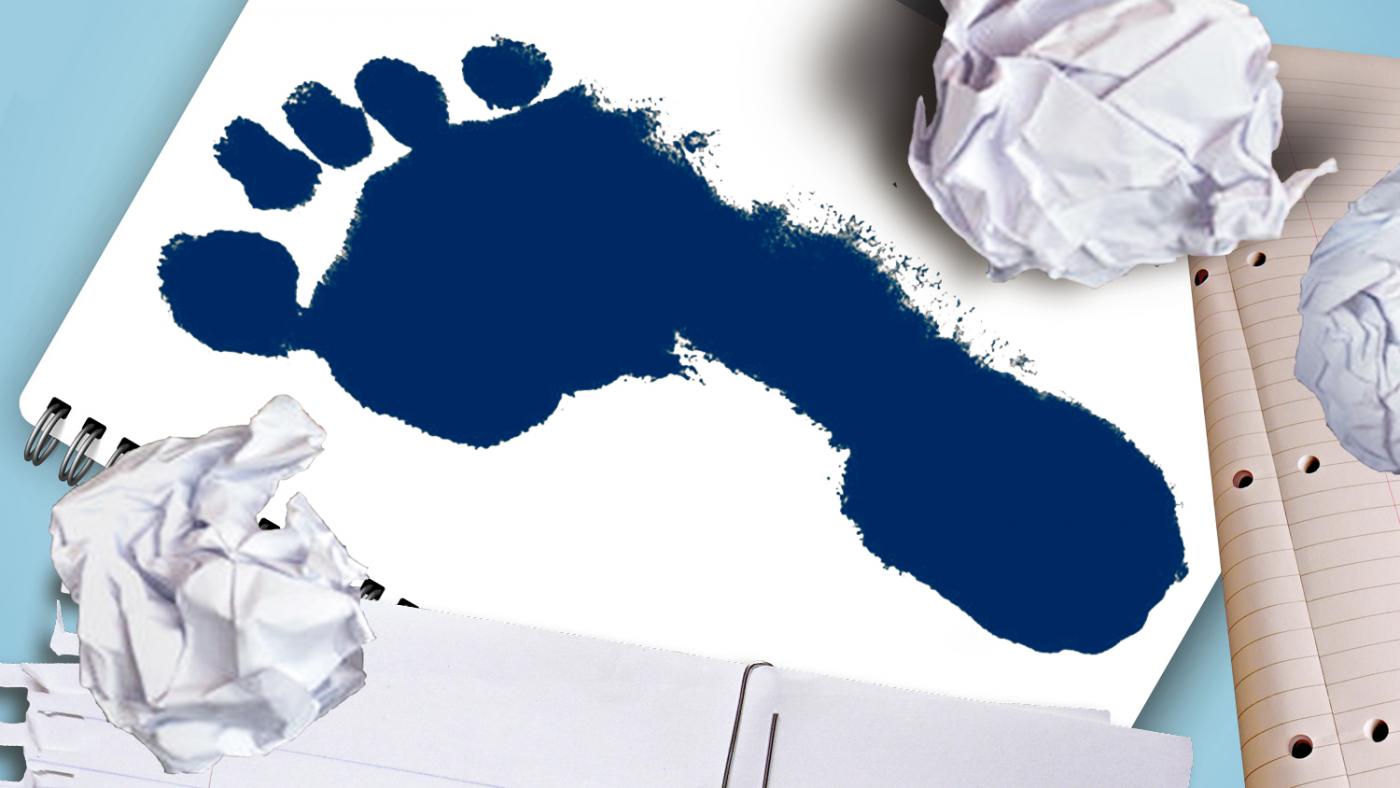Digital alternative to 'paper assignments’ not always possible, Science students say

In April of this year, the student section of the University Council submitted a plan to the university board asking it to ban paper assignments. The memo, drawn up by student members Nienke Prins and Sarah van Driel, supports the university's efforts to make education more sustainable and to further digitise it. Moreover, both students and the university would save a lot of printing costs. The memo states that it is still common practice, especially at the Faculties of Science, Geosciences, and Social Sciences, to hand in an assignment on paper.
The article that DUB wrote on this subject provoked quite fierce reactions on the website, social media, and in direct contact with the editors of DUB. The reactions show a stark contrast: from students who are surprised about the fact that there still are paper assignments, to students who can't imagine otherwise. Teachers wondered on Twitter whether there were larger steps to be taken in other areas in terms of sustainability and savings. Examples mentioned here are having to travel to the university five days a week for just one lecture a day, and the maintenance of the buildings in the city centre. On the other hand, it is stated that it is in any case an easy start. Readers also wondered whether a ban is the right method, and whether it's not too much 'micromanagement'.
Problems for Science
Following the request of the students in the University Council, confusion has arisen within the Faculty of Science as to what exactly will fall under this ban. Since the memo mainly talks about savings on energy, ink, paper, and printing costs, it only seems to concern printed assignments. However, the memo does not explicitly exclude handwritten assignments. And these are precisely the assignments that are often prescribed within various Science studies. In programmes such as Chemistry and Pharmacy, so-called lab journals are often still kept on paper, and in Physics and Mathematics homework assignments are best done when they are handwritten, as the Sons (Studenten Overleg Natuur Sterrenkunde; Student Consultation in Physics and Astronomy) and the WOL (Wiskunde OverLeg; Mathematics Consult) report.
WOL explains that almost all bachelor students of Mathematics receive about six assignments per course that have to be submitted on paper. In Physics, these are slightly less common, but there are still five courses in the bachelor’s programme where it is necessary to submit assignments on paper, says Sons. In these courses, comparisons and formulas often have to be worked out, but graphs and diagrams are sketched out as well, which is very difficult to do digitally. The students are already thinking about alternatives but can't think of anything that could replace the handwritten work. None of the consulted teachers is able to name a suitable solution either.
Alternatives to handwritten assignments
In Mathematics, the most commonly used alternative is LaTeX, a software programme that allows you to create text documents. This allows you to work out mathematical equations relatively easily. Provided you have mastered the language well, Wol says, which is still a steep learning curve, especially for first-year students. Even if you have mastered it, it often takes much longer to complete an assignment, because thinking and writing cannot be combined, the mathematicians say. However, the devices on which this could be done, such as drawing tablets, are still quite expensive. Even so, the students cannot make the assignments without paper, they think, because scrolling back and forth between assignments - and scratching and tearing if they don't succeed - is still seen by the students as an important part of the thinking process.
At Sons and WOL, they do know of two possible solutions for implementing the requests in the memo. First of all, the decision can be taken at faculty level, instead of at university level. In this way, decisions can be made per faculty or programme. Another idea is to prohibit teachers from obliging students to submit an assignment on paper. This would allow students to make their own choices and would still save a lot of paper.
Digital where possible
The University Council states that the memo is mainly aimed at assignments that can also be submitted digitally, and at assignments that are submitted digitally but also printed. "So, where twice the work is being done that is not even sustainable either," says Nienke Prins of the University Council. "Some assignments have to be on paper, as is the case with many Science subjects. They have nothing to fear! We want to make students' lives easier, not more difficult."